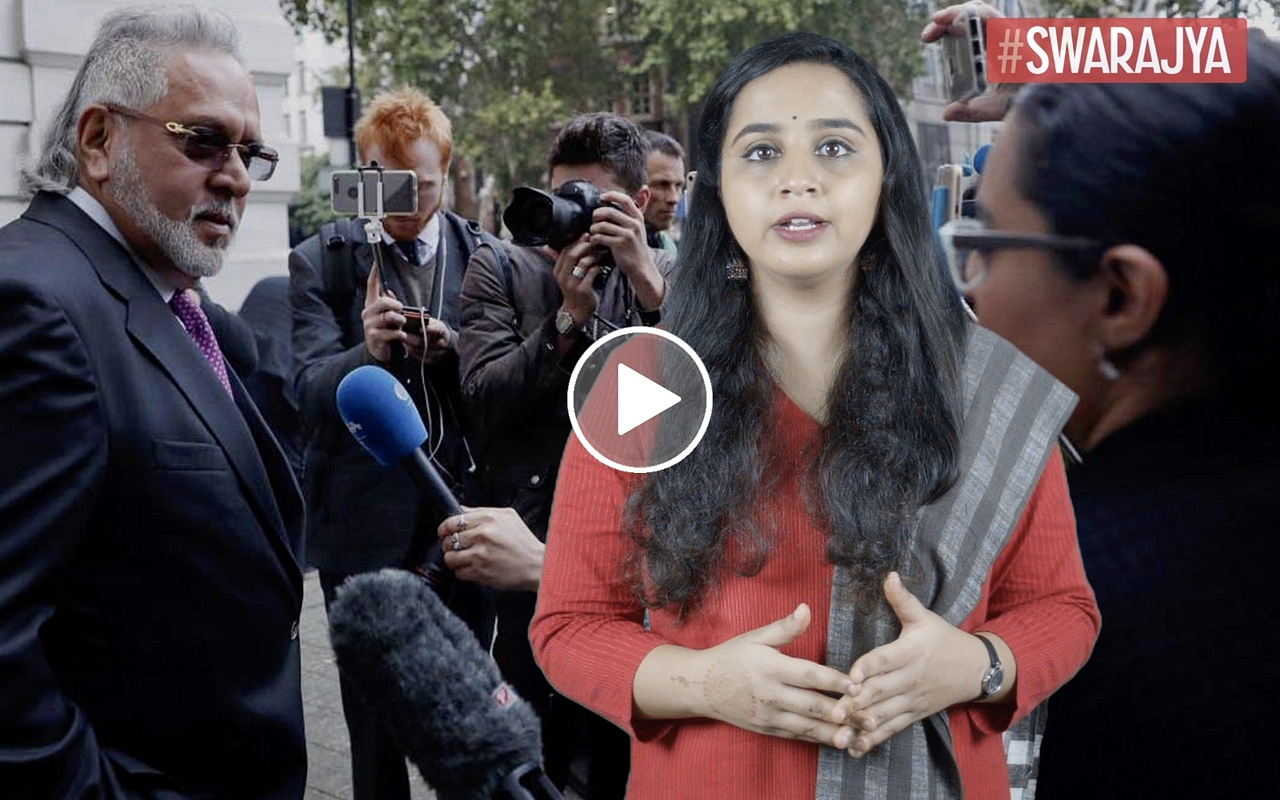Videos
[Watch] How India Is Reining In Economic Offenders On The Run

India is cracking down on fugitive economic offenders.
Transcript:
In early 2018, India reeled under the revelation of massive fraud at Punjab National Bank by diamantaire Nirav Modi and his uncle Mehul Choksi.
The news of those involved fleeing the country to avoid interrogation and possibly severe punishment was a major point of concern.
It was this high-profile case as well as the case of Vijay Mallya that brought about an important piece of legislation – one that is equipped to handle existing economic offences and deter future offences of a similar nature.
In a matter of months, the Government of India introduced a draft bill, promulgated an ordinance, and later pushed for the Fugitive Economic Offenders Bill, 2018, to be passed both in Lok Sabha and Rajya Sabha.
So, let’s get into it. What does the Act entail?
It allows for a person to be declared as a fugitive economic offender, or FEO, by an order of a special court if an arrest warrant has been issued against them for any specified offences where the value involved is over Rs 100 crore, and if they have left the country and now refuse to return to face prosecution.
The special court requires the person to appear at a specified place at least six weeks from the issue of notice. Proceedings will be terminated if the person shows up.
The Act also allows authorities to provisionally attach properties of an accused while the application is pending before the special court.
Upon declaration as an FEO, properties of a person may be confiscated and vested in the central government, free of encumbrances.
As of March 2018, the Ministry of External Affairs has said that over 30 businesspersons, under investigation by the CBI and the Enforcement Directorate, had absconded to avoid facing prosecution before Indian courts.
The Act has provided enforcement agencies with the right tools to tackle fugitive economic offenders with considerable assets in India. Take the case of Mallya, who fled the country in 2016 and has seen been ordered to be extradited to India by UK courts.
The multi-pronged approach for Mallya by the Modi government – from launching extradition proceedings against him, to the successful bid by Indian banks to freeze his assets in the UK, to recover their loan dues – is being complemented by the provisions of the Fugitive Economic Offenders Act, 2018.
A special court that heard cases under the Prevention of Money Laundering Act issued summons to Mallya, asking him to appear before it by 27 August or face consequences under the Fugitive Economic Offenders law. Considering that he failed to appear before the court, his domestic assets were confiscated and Mallya became the first person to be declared as a Fugitive Economic Offender under the new law.
Given that his extradition is now certain, and his assets, estimated to be worth around Rs 13,500 crore has been seized by the Enforcement Directorate, Mallya has no option but to face the courts in India.
The Fugitive Economic Offenders Act, 2018 enacted by the Narendra Modi led Government is both a deterrent to future offenders and a strong tool to hold accountable those economic offenders who chose to run away.
We finally have tough legislation to ensure that those who run away after diddling banks pay back at least some if not all of their dues.
Introducing ElectionsHQ + 50 Ground Reports Project
The 2024 elections might seem easy to guess, but there are some important questions that shouldn't be missed.
Do freebies still sway voters? Do people prioritise infrastructure when voting? How will Punjab vote?
The answers to these questions provide great insights into where we, as a country, are headed in the years to come.
Swarajya is starting a project with an aim to do 50 solid ground stories and a smart commentary service on WhatsApp, a one-of-a-kind. We'd love your support during this election season.
Click below to contribute.
Latest